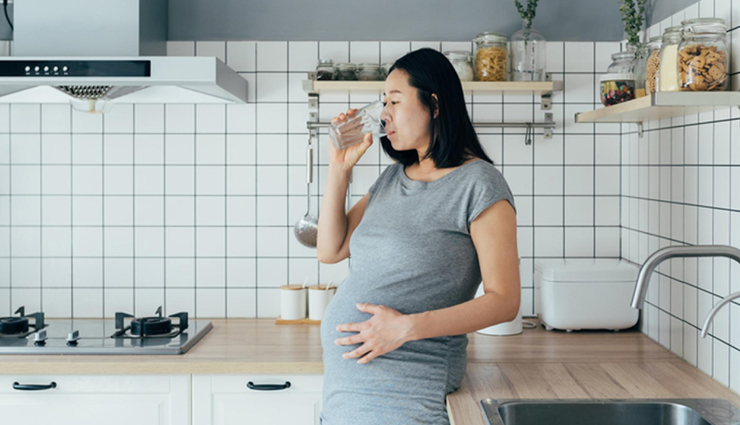- Home›
- Healthy Living›
- Pregnancy And Infant Loss Remembrance Day- 10 Tips To Reduce Risk Of Pregnancy Loss
Pregnancy And Infant Loss Remembrance Day- 10 Tips To Reduce Risk Of Pregnancy Loss
By: Priyanka Maheshwari Thu, 15 Oct 2020 2:24:38

Approximately 15% of pregnant women experience miscarriage (this is an underestimation, since many losses are unrecognized). Most early pregnancy losses are caused by random chromosomal abnormalities, with rates as high as 70% abnormal genetics prior to 20 weeks.
Advancing age, obesity, and chronic medical issues such as diabetes, some thyroid disorders and hypertension, also increase the risk of miscarriage. While these are out of your control, there are other ways to reduce your chances of having a miscarriage, stillbirth, or infant death. Taking these simple steps can help control your risks and increase your chance of a healthy pregnancy.

* Wash Your Hands
There are a number of infections that can cause miscarriage, stillbirth, or infant death. The easiest way to avoid catching any of these viral or bacterial infections is to practice good hand hygiene and socially distance from sick people.
* Quit Smoking
We’ve known for years that smoking is a major health risk. It increases your risk of many kinds of cancer, lung disease, heart disease, high blood pressure, and stroke. Women who smoke are more likely to experience infertility and/or have a miscarriage, stillborn baby, preterm delivery, or low birth weight infant.

* Be Careful in the Kitchen
Food-borne illnesses like listeria are associated with an increased risk of miscarriage. Although pregnant women are routinely advised to avoid the foods that are the most common sources of dangerous bacteria, like undercooked meats and unpasteurized cheeses, they are not the only possible sources. For women who are pregnant or trying to get pregnant, safe food handling is even more important than usual.
* Get a Flu Shot
Although some women fear the flu shot can cause miscarriage, study after study shows no increased risk of miscarriage after the flu shot. An inactivated influenza vaccine is recommended regardless of stage of pregnancy.
Women who get the flu while pregnant are at high risk—the H1N1 strain, in particular, is more likely to be fatal to pregnant women than the general population. Both maternal and fetal effects of Covid-19 infection during pregnancy are still unknown and are currently being assessed. High fever during pregnancy is also associated with neural tube defects.

* Lose Weight Before Conceiving
Like smoking, obesity has been linked to many health problems—from increased risk of heart disease, diabetes, and certain types of cancer, to pregnancy complications including premature birth, preeclampsia, gestational diabetes, and all types of pregnancy loss.
We don’t understand all the reasons that obesity is linked with pregnancy loss. But studies all over the world are finding the same results. Women who are obese have a much higher risk of losing their babies.
* Eat Right
Eating a healthy diet isn't just a concern for women trying to lose weight. Research has found that a diet rich in fruits, vegetables, and whole grains can lower your risk of pregnancy complications.
A 2011 study from Stanford University found that women were 50% less likely to have a baby with anencephaly while eating such a diet.? A healthy diet is also associated with weight control and optimal blood sugar control for women with diabetes.

* Start Prenatal Care
If you haven’t already started prenatal care, you should do so as soon as possible. A physical exam from a doctor or midwife may uncover health problems or pregnancy complications you aren’t aware of which could lead to a pregnancy loss if they go untreated—such as high blood pressure, gestational or type 2 diabetes, cervical or uterine abnormalities, or sexually transmitted infections.
* Take Your Medications
Chronic health problems like lupus, diabetes, and high blood pressure are all associated with increased chances of pregnancy loss. If you have a diagnosed chronic illness, you'll have the best odds for a healthy pregnancy if you keep your condition under optimum control both prior to conception and throughout pregnancy.

* Have Safe Sex
It may seem crazy to recommend safe sex to women who are pregnant, or trying to get pregnant, but the fact is that sexually transmitted infections, like chlamydia or syphilis, can cause miscarriage, stillbirth, neonatal death, infertility, and ectopic pregnancy.
Anyone who is sexually active is at risk for STIs. You’ll get screened when you start prenatal care, but you may want to get screened even before you start trying to conceive if you or your partner have more than one sexual partner. If you have multiple partners, you should use a condom, even while pregnant, and you should always use condoms with a new sexual partner until you have both been screened for STIs.
* Don't Drink
In the United States, women are advised to avoid consuming alcohol during pregnancy. The risk of fetal alcohol syndrome is the reason most people know about, but there is also a potential risk for miscarriage or stillbirth, especially with regular or excessive alcohol use.
Other countries have different recommendations for how much alcohol use is safe in pregnancy, but there is no known lowest safe amount, so it's most prudent to abstain altogether in pregnancy. If you are a regular drinker or don’t think you can quit drinking, discuss this with a healthcare provider.





